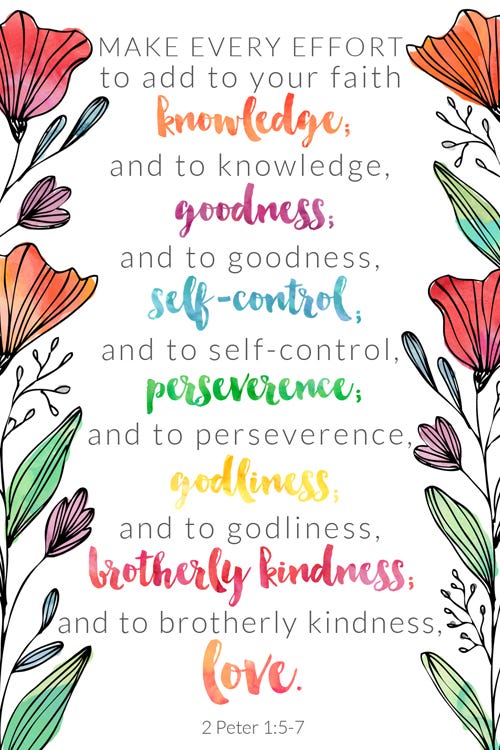Delivered by Abundance: What’s our end goal for humanity?
'Winning the game' - using technology to build a more beautiful future for our descendants
I’m looking for input - are any of you all listening to the audio recordings of these emails, and if so, is it worth me continuing to do this? Please text/email/comment and let me know. If you don’t know what I’m talking about, click ‘Listen to Post’ on the gray bar just above this to hear yours truly rambling excitedly.
A truth about humans - we love games, competitions, and tournaments
We’re into sports, reality television, the thrill of a contested outcome. 18 television programs in US history have recorded 100 million or more viewers. 13 of those were Super Bowls. The other five were the Apollo Landing, Richard Nixon’s resignation speech, the final episodes of MASH and Roots, and the TV-movie The Day After, which aired in 1983 and examined what life might be like following a nuclear war between the US and Russia.
The point is, we love competitions, puzzles, contests, especially when the stakes are high and the outcomes are unknown. Is there a chance that’s part of our innate, God-given wiring?
Framing the ‘end goal of humanity’ as a game to win is a helpful lens for imagining the type of future we’re trying to build.
As we think about this game, it’s not teams competing against each other with winners and losers. Our game is less ‘Candyland’ - reaching the coveted candy castle first to get all the sugar, and more ‘Oregon Trail’ - managing resources, overcoming challenges, and navigating harsh terrain to survive until we reach the promised land.
Imagine that our creator has built the gameboard and given us all the tools and discoveries needed to either build upon or destroy the creation. I heard on a podcast once that Christian environmentalists might decry our use of non-renewable energy sources, but if God didn’t want us to use fossil fuels, He sure did make it pretty easy to tap a pipe into the ground and boom, oil’s gushing everywhere.
So if life were a game, we’d use all of the tools and hidden mysteries that the author tucked into the game to determine the right way to play it, how to win, and how to avoid losing (where running out of lives might equal going extinct).
Sometimes I think about all sin being thought, word, or action that moves us towards extinction - one polar outcome. The other pole would be salvation, the ultimate grace, the more blessed future. Who says the second coming of Christ can’t be us winning the game and achieving unitive consciousness with God?
I wonder if we can consider with a level of humble excitement that we might be playing the game of humanity, and that we’re co-authors of a treasure map that our ancestors have been writing over generations, guiding us towards winning moves.
And maybe, just maybe, the technology we’re building currently is something that moves us into a later stage of this game. It raises the stakes, because suddenly our decisions have much wider, faster, and farther-reaching consequences - whether they send us towards extinction or salvation.
What an exciting, intoxicating possibility of being part of the group and generation that nudges us towards a harmonious victory.
But first, we must ask ourselves: what would that victory entail?
We need to begin with a shared goal to rally around and work towards. The visions we are being offered by leaders in government and business for the super-technology future are not inspiring enough.
This has been a recurring frustration for me surrounding the AI discourse. Leaders tell us the many ways our jobs could be disrupted or replaced altogether by new technologies. They tell us how the economy could be upended. They tell us the ways that our consciousness may be preyed upon, how society might fall apart. Remind me why this inevitable technology should be anything other than reviled?
And yet, we can’t be satisfied with anything less than a compelling vision that inspires us.
I want to be deeply connected to the spirit of the Divine within me. Interacting with nature. Belonging to a loving, supportive family and communities. I want all my physical necessities provided for. I want to play, dance, take care of the people around me, and worship. I want to be a part of the grandly unfolding cosmic mystery. Winning the game has to involve us utilizing tools to move us towards achieving our deep-seated wants.
I perceive humans to have an innate longing to transcend our current limitations and strive towards progress, beauty, and godliness.
We are driven by a yearning to know and cultivate the higher essence within ourselves. Like our ancestors throughout history, we pursue paths of self-improvement, seeking to enhance our physical, mental, emotional, and spiritual capacities.
We are drawn to beauty in its multifaceted forms, whether it be the aesthetic beauty of art, nature, and the human form, or the transcendent beauty found in acts of kindness, selflessness, and love. Irish poet John O’Donahue describes beauty as process of spiritual formation:
“Beauty isn’t all about just nice loveliness. Beauty is about more rounded, substantial becoming. So I think beauty, in that sense, is about an emerging fullness, a greater sense of grace and elegance, a deeper sense of depth, and also a kind of homecoming for the enriched memory of your unfolding life.”
This process of pushing the boundaries of what is possible and reaching towards higher states of being is a consistent Biblical theme. Consider 2 Peter 1:4-7:
…He has given us his very great and precious promises, so that through them you may participate in the divine nature, having escaped the corruption in the world caused by evil desires. For this very reason, make every effort to add to your faith goodness; and to goodness, knowledge; and to knowledge, self-control; and to self-control, perseverance; and to perseverance, godliness; and to godliness, mutual affection; and to mutual affection, love.
An inspiring former colleague of mine shared that she believes the call of Christians isn’t to be perfect, but to move society closer to heaven on earth so that more people know what it is to be loved by God in a way that allows us to better love one another.
The passage from 2 Peter suggests that pursuing knowledge of God’s divine nature can send us on a transformative journey towards our capacity to become more like God, reflecting His character and attributes in our lives, until ultimately we can help build a more loving world.
That’s what winning the game looks like - dreaming up the more beautiful world we want to pass down to our children and their children, then harnessing technology to help us realize this shared objective.
AI advancements will be a catalyst in this pursuit, and will force us to confront ourselves with difficult questions about the extent of progress we desire:
Do you want to live forever?
Do you want to eradicate Alzheimer’s from your gene pool?
Is it fair for me to manipulate my child’s genetic code if you decide you don’t want to? Good luck beating them in little league!
Those are questions to unpack for another day. Part of the goal for this work is to surface queries that we’ll return to and examine over time.
In next week’s post we’ll examine some of the commonly-held fears around AI, and the reason why it’s important that we consider our end goal for humanity - because if we don’t get explicit about what we want for ourselves and for society, we’ll automatically fall into what market forces incentivize for us, which is often far from being in our best interests.
I want to build towards a blessed union, the kingdom of heaven on earth, an environment where humans can thrive individually and collectively as part of a vital and nourishing biosphere. What about you?
If you found this thought-provoking, I encourage you to share the concept with someone in your life. Drop in on this question with your spouse or your friend group - what are we working towards, what are we hoping is true 50-60 years from now for our grandkids?
I’d love to hear what you come up with!






